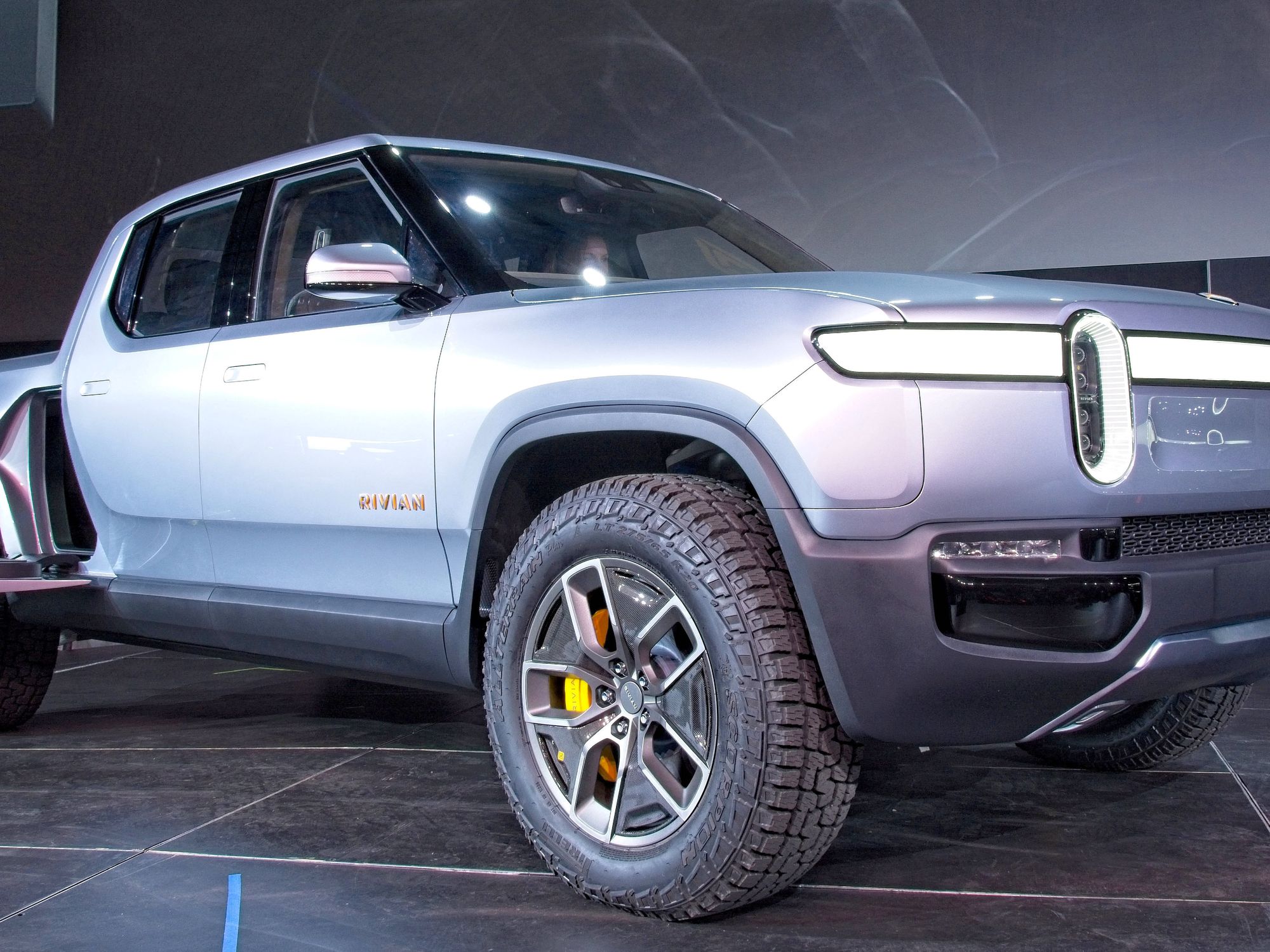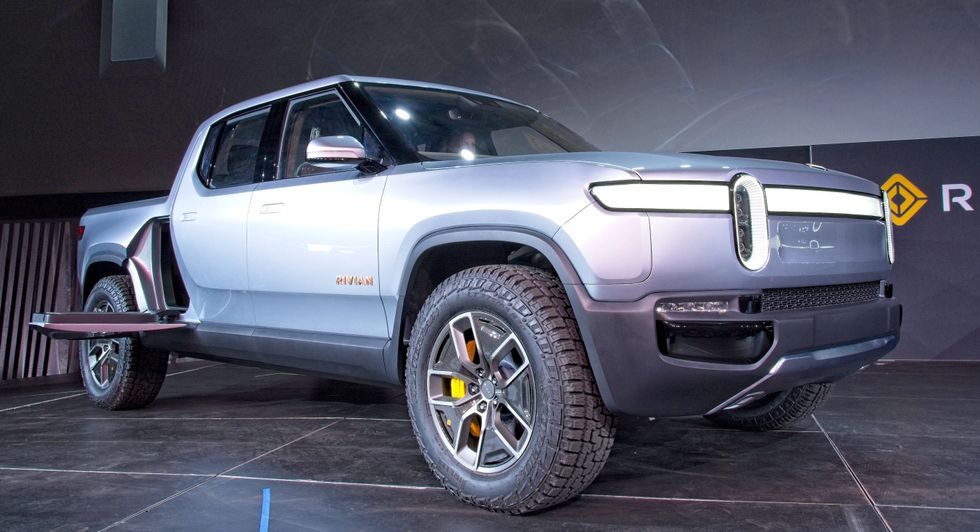LA Tech Updates: EV-Makers Rivian, Fisker, Karma Get Super-charged; Facebook issue crashes TikTok
Rachel Uranga is dot.LA's Managing Editor, News. She is a former Mexico-based market correspondent at Reuters and has worked for several Southern California news outlets, including the Los Angeles Business Journal and the Los Angeles Daily News. She has covered everything from IPOs to immigration. Uranga is a graduate of the Columbia School of Journalism and California State University Northridge. A Los Angeles native, she lives with her husband, son and their felines.

Here are the latest updates on news affecting Los Angeles' startup and tech communities. Sign up for our newsletter and follow dot.LA on Twitter for more.
Today:
- Tesla shares soar, Fisker rumored to go public, Karma gets $100m
- Facebook issues crash TikTok, Pinterest, Spotify
A Super-Charged Electric Vehicle Market: Rivian, Fisker and Karma Rake in Funds

Rivian Automotive is the maker of electric pickup trucks.
Tesla's success has super-charged investor interest in the electric vehicle market.
Exhibit A is the two Southern California-based electric car makers, Fisker and Karma, which secured millions in funding this week as they sought to ramp up production. Then came word Fisker, created by one-time Aston Martin designer Henrik Fisker, is now in talks to go public through a sale to a so-called blank-check acquisition company, Reuters reported on Thursday.
Today, Detroit-based Rivian Automotive, maker of electric pickup trucks that's backed in part by Ford Motor Co., announced that it secured $2.5 billion in funding from private investors.
The race to push out more electric vehicles comes as after Tesla supplanted Toyota as the most valuable car maker. Its shares have been soaring and it now has a market cap that stands at over $285 billion despite controversies and a much lower production volume.
Spartan Energy is bidding against other special purpose acquisition companies, or SPACs as they are called, to bring Fisker public through a reverse merger, according to the report. Spartan is backed by Apollo Global Management, a private equity firm.
With a freshly secured $50 million in private funds, Fisker plans to sell the Fisker Ocean luxury electric SUV at a starting price of $37,500 in 2022. Fisker's previous venture Fisker Automotive fell into bankruptcy in 2013 and was bought by a Chinese group that rebranded it Karma. That company, which has been struggling after several layoff rounds and restructuring, is Karma and earlier this week secured $100 million from investors. It hopes to use that to raise a total of $300 million and roll out a line of electric vehicles.Facebook issue crashes Spotify, TikTok, Pinterest
 farm5.staticflickr.com
farm5.staticflickr.comIf you were trying to use a handful of iOS apps including Spotify, TikTok and Pinterest Friday morning chances are you couldn't get in because of a Facebook log-in issue.
The hiccup came from Facebook's software development kit (SDK), which several apps rely on to operate. Developers use SDK for users who want to sign in with their Facebook account.
"Earlier today, a code change triggered crashes for some iOS apps using the Facebook SDK," Facebook's developer site announced. "We identified the issue quickly and resolved it. We apologize for any inconvenience."
The crash hit some of the biggest apps.
"Something's out of tune," Spotify's Status account said on Twitter in the early morning. "We're currently investigating, and we'll keep you posted here!"
It's the second time this year the Facebook interface has caused a crash.
Something's out of tune. We're currently investigating, and we'll keep you posted here!
— Spotify Status (@SpotifyStatus) July 10, 2020
- Fisker to Go Public, Set to Produce Electric Cars by 2022 - dot.LA ›
- Karma Automotive Details Plans to Go Public - dot.LA ›
- Fisker Picks Up Manhattan Beach Headquarters - dot.LA ›
- Karma prices its electric car at $79,000 - dot.LA ›
- Electric Vehicles’ Rise Could End SoCal Car Dealerships - dot.LA ›
- Alpha Motors Opens Reservations For Wolf Electric Pickup - dot.LA ›
- LA Has Become a Magnet for EV Charging Station Startups. - dot.LA ›
- Fisker Wants Climate Neutral Car, Eyes Electric Pickup Truck - dot.LA ›
- Fisker Says Its Losses Are Shrinking As It Readies a New SUV - dot.LA ›
- Rivian, Based in Irvine, Files to Go Public - dot.LA ›
- Rivian IPO Filings Show Losses Before Going Public - dot.LA ›
- Feds Investigate Tesla Crash that Killed Retired California Couple - dot.LA ›
Rachel Uranga is dot.LA's Managing Editor, News. She is a former Mexico-based market correspondent at Reuters and has worked for several Southern California news outlets, including the Los Angeles Business Journal and the Los Angeles Daily News. She has covered everything from IPOs to immigration. Uranga is a graduate of the Columbia School of Journalism and California State University Northridge. A Los Angeles native, she lives with her husband, son and their felines.
Francesca Billington is a freelance reporter. Prior to that, she was a general assignment reporter for dot.LA and has also reported for KCRW, the Santa Monica Daily Press and local publications in New Jersey. She graduated from Princeton in 2019 with a degree in anthropology.




 Image Source: JetZero
Image Source: JetZero